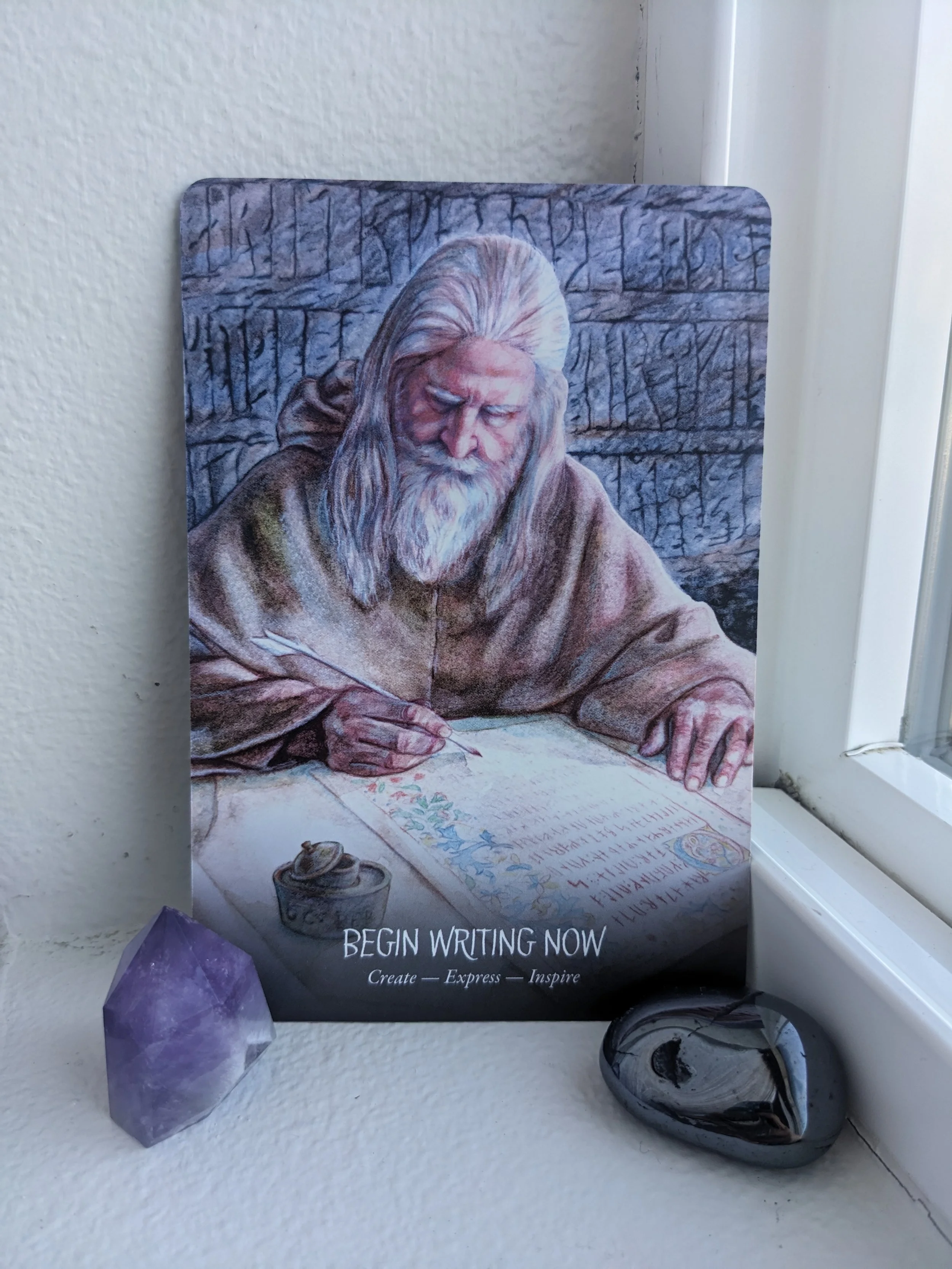7 Top Takeaways from PNWA 2024
7. “Beta readers are strangers who want to hurt you.”
My top 7 takeaways from the PNWA Conference, including the #1 mistake in opening pages, what makes people buy your next book, querying advice, and more.
My meager 1.5 days at the 4-day PNWA Conference produced 10 pages of typed, bulleted notes (transcribed from frenzied handwritten scribbles, of course). I only attended 8 workshops, including the multi-table Moveable Book Feast and Damon Suede’s multi-day Plot Lab, and still my brain was fit to burst. Now that I’ve had two months to fully absorb all the info, I’m ready to share my top 7 takeaways for anyone who missed it!
7. “Beta readers are strangers who want to hurt you.”
This gem is from Amy Collins, a literary agent with Talcott Notch Literary Services. After pitching my unfinished book to her, she described several stages of editing to go through before sending out my manuscript, including alpha and beta readers. I told her I have that covered: I have a writing group! She said she wasn’t talking about the type of readers who want to preserve my feelings. “Beta readers are strangers who want to hurt you.” My writing group would be alpha readers. Amy recommended finding beta readers online to make sure you get real, unvarnished feedback.
6. The #1 mistake found in opening pages: Pacing!
Both Matt Rusin, an editor at Tor, and Micah Brocker, a literary agent and author, said this in completely different workshops. Racing through an interesting scene and starting off too slowly are equally deadly. Matt Rusin said this is the #1 reason he rejects in the opening pages.
5. Different agents have different querying preferences and pet peeves.
Look, I know this is obvious. But it was illuminating to hear the exact opposite advice given out in different workshops. For example, Amy Collins does not want to hear about your dogs in your bio paragraph, but Micah Brocker does. Amy does want to hear about your works in progress, and Micah doesn’t think it’s worth the space to talk about WIPs. Knowing your prospective agent’s preferences can help you stand out to them specifically.
5. “A website is your sandbox, blog posts are your sandcastles.”
This is paraphrased from Fitz Cyr’s in-depth marketing fundamentals workshop. Go check out their guide to SEO for authors! Given how crucial author websites are, this is a pretty big statement! Blog posts connect you with readers, help build your brand and credibility, and provide content for newsletters.
3. The way many agents read queries
Per Micah Brocker, many agents start by reading the intro paragraph, then skip to the pages, and come back to the query letter if they like the pages. I’m so grateful for this context. In many cases, my query letter won’t convince the agent to read the pages: it will (hopefully) convince the agent to read the rest of the manuscript. This will help me focus my query letter on plot after the opening pages, and avoid unnecessary backstory that gets revealed or hinted at within the pages themselves.
2. “Your ending is the reason people buy your next book.”
From Damon Suede’s Plot Lab workshop on what he calls the “Reward” plot point (aka denouement or Final Image.) I have read at least three books this year that I enjoyed until the ending, which soured me on the whole book as a result. And it’s true: I don’t plan to read more from those authors! This advice is helping me hone what I want readers to take away from my book, and focus on delivering that within the ending.
1. Go to writing conferences!
I had an incredible time at PNWA 2024. In addition to learning all this (and about 9 pages more), I successfully pitched my unfinished novel to 4 agents who asked me to send them pages when I finish. I made friends and joined another writing Discord server full of PNWA attendees. I cheered on winners of the writing contest at a lovely dinner. I highly, highly encourage writers anywhere in their journey - even / especially if you haven’t started writing yet - to go to a conference near you. If this is what I got out of 1.5 days, imagine what half (or more) of a conference could bring you!
My origin story
While trying to decide on my career path at seventeen, I came across an odd bit of wisdom in a playwriting course. A Serious Writer stated matter-of-factly that no writer wants to write. No writer chooses this path. Writers write because they have to. They have no other choice.
Oh, I thought. I guess I’m not a writer. I don’t have to write. I can envision other futures.
The first book I ever wrote was a meditation on familial relationships and life stages. I illustrated pastoral scenes where people held hands on grassy fields. It was titled, simply, “LiFE.” I was four.
Like many authors before me, I regurgitated my own material over and over, creating dozens of tiny booklets that went into the hands of relatives and caretakers. All titled “Life”. Very sparse word counts.
Once I could form my letters, I wrote a lot of first chapters. I started at least ten fantasy series. Another story was about a girl who owned every breed of dog that’s black, tan, and white: rottweilers, beagles, mountain dogs, etc. I didn’t get very far. That’s a lot of dogs!
While trying to decide on my career path at seventeen, I came across an odd bit of wisdom in a playwriting course. A Serious Writer stated matter-of-factly that no writer wants to write. No writer chooses this path. Writers write because they have to. They have no other choice.
Oh, I thought. I guess I’m not a writer. I don’t have to write. I can envision other futures.
So then I was not a writer for many years.* (Unless you count the four creative writing courses in university. Or the plays in high school. Or the dozen-or-so songs over the past decade.)
I accidentally developed a growth mindset in 2021. It’s a long story, but it completely changed my life. It’s how I was able to try, and to enjoy, surfing, even though I’m not a good surfer (yet.) I decided to start reading again. At some point, it brought me back to writing.**
As a child and teen, books were a lifeline for me. They fueled my daydreams and staved off loneliness, for the most part. I think I actually believed I was Matilda, and was confused when my telekinesis didn’t kick in. I dreamed of being a published author before memory. I used to think: if a story can help a kid feel a little less lonely, I want to write it.
When I started reading again, the dream of writing came back, too. I was in denial at first. The Serious Writer’s words had rooted themselves deeply. I was happy enough in my day job, happy enough to explore my other interests and hobbies. I wasn’t dying to write. But I wanted to.
I wanted to write a story that helps someone. I wanted to write YA because I believe I have something valuable to share with teenagers: something I wish I had access to when I was in high school. Adult / mainstream / literary fiction is fun for me to read, but I’m not moved to write it, because there’s nothing in particular I have to say.
Was the Serious Writer wrong? I’m not sure. In a way, I do feel like there’s something I have to say. But I also want to write. I even enjoy it, most days. I’m not a fan of gatekeeping; if you write, you’re a writer, and that’s all there is to it.
After I accepted that I wanted to write, I started reading Bird By Bird by Anne Lamott. 10/10 recommend that book for any aspiring writer. She talked me out of writing as a means to an end; she talked me into writing for writing’s sake. I wrote every morning that summer, and I loved it.
I kept going. I signed up for UBC’s edX course on novel writing. I outlined my debut novel. And then I wrote it! A whole draft that I held in my hands. I started rewriting, and I haven’t stopped. (Paused, on the other hand? Hesitated? Absolutely.)
Here I am, a year after I started my outline. I now have a writing group that meets for weekly progress check-ins and ad-hoc critiques. We are the Draft Dodgers. I went to the PNWA Writers Conference last weekend, where I absorbed as much as possible from the information firehose and made new friends. I even pitched my unfinished book to a few agents who want to read it when it’s done. Eek!
It’s still scary to call myself a writer, but I’m working on it. My sister once gave me a fantastic pen that read “j’écris, donc je suis.” For my purposes, a line edit: “j’écris, donc je suis une écrivaine.”
*My “not a writer” years included stints in the fitness industry, serving and bartending, and studying computer science. I’m currently a software engineer by day, yoga apprentice by night, and writer by the wee hours of the morning.
“Begin Writing Now”
**I should also credit the randomly-drawn oracle card that I received in my Witches Roots subscription box, which reads “Begin Writing Now”. I’ve kept it propped up on my windowsill for a year and a half. The Ancestor Spirit deck is by Jade-Sky with artwork by Belinda Morris.



